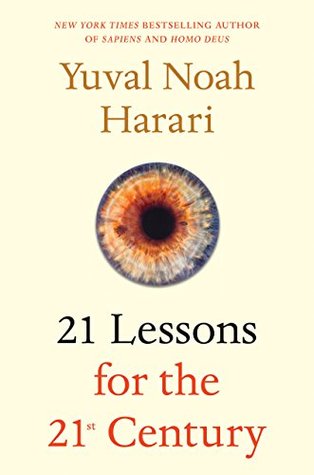More on this book
Community
Kindle Notes & Highlights
My first book, Sapiens, surveyed the human past, examining how an insignificant ape became the ruler of planet Earth.
Homo Deus, my second book, explored the long-term future of life, contemplating how humans might eventually become gods, and what the ultimate destiny of intelligence and consciousness might be.
hone
truism
immolation
liberalism.
poignant
The merger of infotech and biotech might soon push billions of humans out of the job market and undermine both liberty and equality. Big Data algorithms might create digital dictatorships in which all power is concentrated in the hands of a tiny elite while most people suffer not from exploitation but from something far worse—irrelevance.
panacea—accepted,
mantra.
rebuked
exacerbated
such as Bitcoin might completely revamp the monetary system, making radical tax reforms inevitable. For example, it might become impossible or irrelevant to calculate and tax incomes in dollars, because most transactions will not involve a clear-cut exchange of national currency, or any currency at all. Governments might therefore need to invent entirely new taxes—perhaps a tax on information (which will be both the most important asset in the economy and the only thing exchanged in numerous transactions).
Humans were always far better at inventing tools than using them wisely.
because we didn’t understand the complexity of the global ecology, the changes we made inadvertently disrupted the entire ecological system, and now we face an ecological collapse. In the coming century biotech and infotech will give us the power to manipulate the world inside us and reshape ourselves, but because we don’t understand the complexity of our own minds, the changes we will make might upset our mental system to such an extent that it too might break down.
In 2018 the common person feels increasingly irrelevant.
It is much harder to struggle against irrelevance than against exploitation.
plight
wary
idiosyncratic


